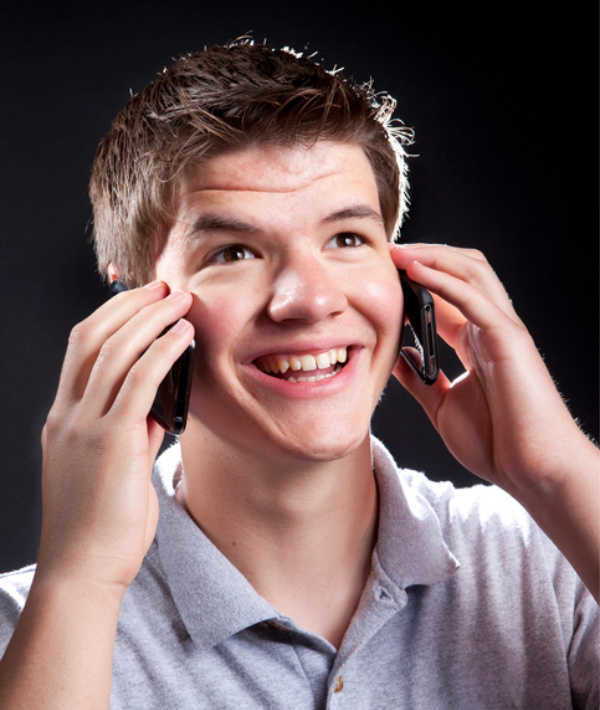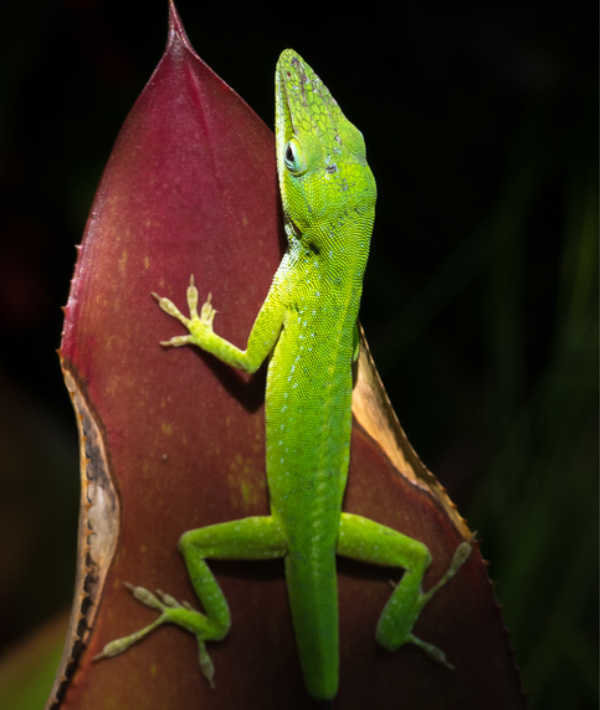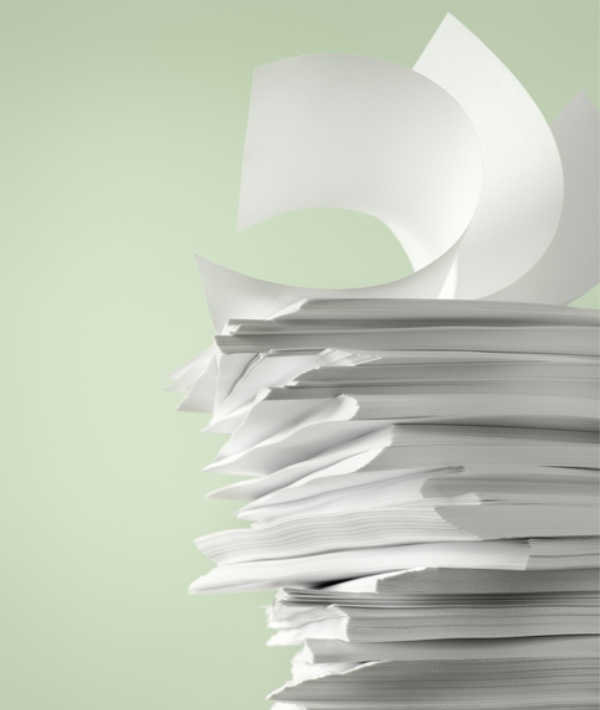
OK, yes, maybe we're some pretty big nerds over here, but what can we say — we love learning about new things, and especially weird words. Learning a new word a day is the equivalent of eating an apple a day to keep the doctor away, only instead of keeping us from being sick, a quick scroll through the dictionary on a daily basis keeps our brains from rotting. And sure, maybe that analogy falls apart a little bit after a moment's examination, but that doesn't mean we think the meaning behind it is less true.
Learning new words helps expand our horizons, makes us better readers and communicators, and is a great habit to get into — especially when we have impressionable young minds looking up to us and learning life skills from us. So today, we decided to dig up some of the weirdest words in the English language with a little help from our favorite online dictionaries — no trip to the library required. There are some strange ones in this round-up — and more than a few we really, really enjoy.
Now that it's back-to-school time, we love the idea of learning alongside our kids. While some of us may be back in school right now ourselves (or at least contemplating going after a degree we want), others may not currently be up for pursuing any kind of formal education, but learning on our own is always a good idea. Even when we're totally full up of other projects like running after kids all day, ensuring they show up at school at least mostly clean in some areas, making sure there are healthy snacks in the house we're not totally and completely ashamed if our kids eat, we still want to make sure we're growing and challenging ourselves and showing our kids that life is meant to be lived trying new things and stretching ourselves, even if it's just a tiny bit.
And honestly, learning new words can be a part of that — even if it's just one new word a day (or even one new word a week). Write the word on a board with all the other stuff for the coming week — the dentist appointments and after-school projects — and it's an easy way to have something there that's just for everyone to benefit from. So keep reading to learn new ways to describe talkative dinner guests, lava, hypochondriacs, and see what word is a good call to share with the family!
Aa

As an abbreviation, "aa" can mean a lot of things: anti-aircraft, administrative assistant, Alcoholics Anonymous … even a type of battery. But the short, vowel-only word, which originated in the Hawaiian language, is one of the first entries in the dictionary, and is a geological term describing a type of basaltic lava. This type of lava is known for its frothy, foam-like texture and jagged segments. Neat!
Absquatulate

This is a fun word. "Absquatulate" is a humorous verb that has a few meanings, including "to flee or abscond," according to Dictionary.com (which regularly flexes its word nerd muscles on Twitter). It most often means to leave with something or someone, much in the way a thief takes off with someone's valuables.
Agelast

Some people seem to never crack a smile? And some lack a sense of humor. Either way, Merriam-Webster says the term to use is an "agelast," a noun that describes someone who is absolutely no fun to have at parties.
Argle-Bargle

Someone who drones on and on, seeming to love the sound of his own voice, is guilty of "argle-bargle," or "copious amounts of meaningless talking or writing," according to the Oxford Dictionary. The noun originated in the 19th century and once meant "to argue" but today more accurately describes someone who just can't get to the point.
Autotomy

Not "autonomy," which means the right to self-govern, "autotomy" is a zoological term that describes the bizarre defense mechanism of an animal in the wild (like a lizard) that detaches a part of its body to escape a predator. More specifically, Merriam-Webster defines autotomy as "reflex separation of a part (such as an appendage) from the body," or "division of the body into two or more pieces."
Borborygmus

A technical term, "borborygmus" is a noun that describes a certain embarrassing sound made in the gut. Cambridge Dictionary defines "borborygmus" as "a continuous low sound made by the movement of liquid and gas in the body." Let's be honest, the word sounds as weird as the noise it describes.
Catawampus

Also written as "cattywampus," this unusual word has several meanings, including as a noun for "an imaginary, fierce wild animal." More commonly, "catawampus" is used as an adjective that Dictionary.com defines as "something that's askew or awry" (like a teenager's bedroom) or something that is diagonally across from something else.
Curmudgeon

_"_Curmudgeon" is a fun way to call someone a cranky jerk. The Oxford Dictionary definition of this noun (which we swear was written about our great-aunt Alice) is "a bad-tempered person, especially an old one." The thesaurus lists "sourpuss" and "grouch" as other amusing variations of the word.
Cybersquatting

A newer word created in the age of the internet, "cybersquatting" isn't describing someone who sits while using the internet (though it totally sounds like it). Instead, it's a noun Dictionary.com describes as "the registration of a commercially valuable domain name … with the intention of selling it."
Deipnosophist

There's always that one friend one can always count on to keep the conversation flowing at a dinner party or late-night get-together? These chatty charmers are "deipnosophists," or, as Merriam-Webster defines it, "a person skilled in table talk." The noun, which originated in ancient Greece, is considered a rare word in the English language, but still completely legal on the Scrabble game board.
Frankenfood

Another word that only recently entered the English lexicon is the noun "frankenfood." Much like the fictional scientist Dr. Frankenstein, who created a human monster in his lab, this word is defined by Oxford Dictionary as "genetically modified foods" that have been engineered to withstand weather, certain pests, and diseases.
Misophonia

If the sound of someone slurping or chewing loudly drives a person batty, that person is probably afflicted with "misophonia." The relatively new noun is described in the Cambridge Dictionary as "a condition in which certain sounds cause a strong negative reaction in someone." The condition is isolated to particular loud noises and is considered completely real by neurologists (meaning, it's not all in the head).
Persnickety

Another eating-related weird word we love: "persnickety." The adjective, according to Dictionary.com, means "overparticular or fussy" and can also mean "snobbish." Or, our own personal definition: every child who ever ate anything but chicken nuggets, ever.
Kerfuffle

_"_Kerfuffle," which sounds like a relative of Big Bird from Sesame Street, is a noun that, according to the Oxford Dictionary, means "a commotion or fuss, especially one caused by conflicting views." We also think it's a much more fun way to describe our children arguing over whose toy it is.
Lycanthropy

Calling all Twilight fans! The noun "lycanthropy" is likely one they're quite familiar with, especially if they fawned over the werewolf character Jacob in the book or film series. Merriam-Webster defines this word as "a delusion that one has become a wolf" or "the assumption of the form and characteristics of a wolf held to be possible by witchcraft or magic."
Nincompoop

Although the latter half of this word makes us think of the toilet, "nincompoop" has nothing to do with bathroom humor. Rather, it is an unusual way to say "a foolish or stupid person," according to the Oxford Dictionary.
Quire

Most don't know there's a noun that specifically means "two dozen sheets of paper of the same size" and, sometimes, 25 sheets. According to Merriam-Webster, a "quire," which is equal to "one-twentieth of a ream," is from Middle English — not, as we discovered, Middle Earth, although it definitely sounds like something a Hobbit would say.
Discommode

While "commode" is a noun meaning a concealed toilet (or more politely, a chamber pot), the verb "discommode" means "to cause someone trouble or inconvenience," according to the Oxford Dictionary. It's also a word every multitasking mom knows well.
Snollygoster

An applicable word for today's difficult political climate is the slang noun "snollygoster," which Dictionary.com defines as "a clever or unscrupulous person" usually associated with a politician. Although the origin is uncertain, the first recorded use of this interesting word was between 1855 and 1860, when US President Franklin Pierce and, later, President James Buchanan were in office (and considered two of the worst in American history).
Valetudinarian

While the noun "valetudinarian" sounds a bit like a valet (car parking service) and a veterinarian (animal doctor) combined, the word actually means "a person of weak or sickly constitution, especially one whose primary concern is their health," according to Merriam-Webster. It's basically a cooler way to say "hypochondriac."



